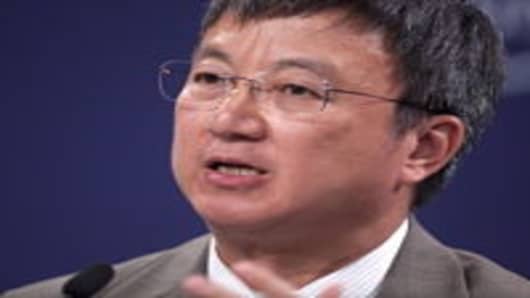A slowdown in China’s growth engine is good news for the country because it gives Beijing space to create a new economic model that is more sustainable and equitable, according to Zhu Min, deputy managing director of the International Monetary Fund.
It is about time that China focused on the quality of economic growth rather than on the top-line number, and this should be built on the expansion that the nation has experienced over the past 30 years, Zhu told CNBC in an interview on Wednesday.
“7.5 percent growth is a very good target because it sends a signal to local governments that we need to build more institutional capacity, work on income distribution, to ensure that growth becomes more equal,” he said.
Changes in China’s demography and labor supply also mean that there may be less urgency for the government to create as many jobs as they have over the past 10 years, Zhu said. The more important task is to “improve efficiency,” he added.
China wants to boost the share of domestic consumption and services in China’s economy and reduce reliance on exports and investments. Such a shift would help China ease the pain from a global downturn because the services sector generates about 35 percent more jobs per unit of gross domestic product, compared to the manufacturing and construction sectors, Stephen Roach, the former non-executive chairman of Morgan Stanley Asia, told CNBC on Monday.
“They can have slower growth but actually more labor-absorption per unit of output and maintain the social stability concerns and objectives that have long been at the heart of the Chinese model," Roach said.
U.S. stocks fell on Wednesday, dragged down partly by comments by BHP Billiton’s CEO that the company was seeing signs of "flattening" iron ore demand from China, raising concerns over the nation's economic outlook.
China may grow between 8 and 9 percent this year, despite the crisis in the euro zone, Roach said on Monday. This is higher than the Chinese government's official target of 7.5 percent.
Such a slowdown may only slightly reduce demand for raw materials, Zhu said. “Domestic consumption also needs imports of iron ore and other things but in a more balanced way,” he added.



